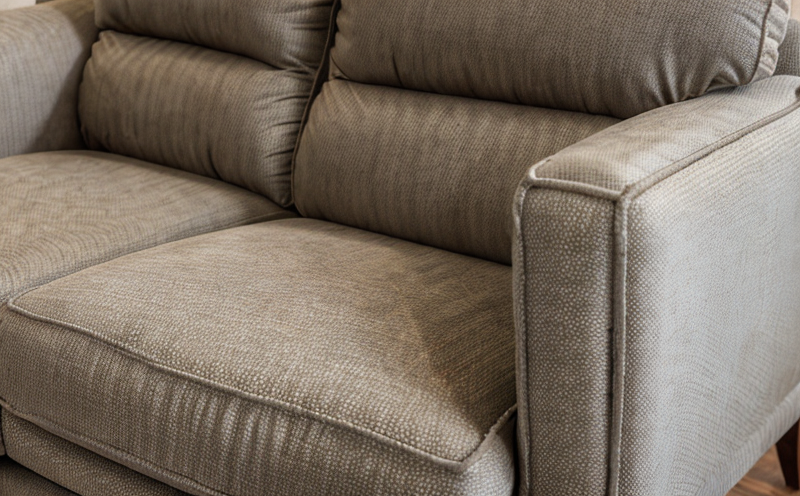Fire Performance Testing of Modular Office Seating
The fire performance testing of modular office seating is a critical service that ensures compliance with stringent safety regulations and enhances occupant safety. Fire-resistant materials and proper design are essential for preventing the spread of flames, smoke, and toxic fumes in case of an emergency. This service involves rigorous testing to evaluate how well the seating can withstand fire exposure without compromising structural integrity or posing additional hazards.
The process begins with careful selection of test specimens, which typically include a representative sample of the modular office seating under scrutiny. Specimen preparation is crucial, involving cutting and shaping the materials according to specified dimensions outlined in relevant standards such as ASTM D7391 for flame spread rating testing or ISO 16928 for smoke density testing.
After preparation, the specimens are subjected to various fire exposure scenarios. These can include open flame tests (ASTM E648), cone calorimeter tests (ISO 5660-1), and thermogravimetric analysis (TGA) to assess thermal stability under controlled conditions. The testing apparatus must be calibrated meticulously to ensure accurate results.
The results are meticulously analyzed, providing insights into the combustibility of materials used in modular office seating. This information is vital for product developers who can use it to refine designs and select safer alternatives if necessary. Reporting follows strict guidelines set forth by international standards like ISO 13584-2 for smoke production measurements during flaming combustion.
Understanding the implications of these tests on overall fire safety in office environments is crucial for quality managers, compliance officers, R&D engineers, and procurement professionals involved in selecting materials or designing new products. By adhering to rigorous protocols and using advanced instrumentation, this service ensures that modular office seating meets all necessary requirements for fire performance.
| Applied Standards |
|---|
| ASTM E648, ASTM D7391, ISO 5660-1, ISO 16928, ISO 13584-2 |
Applied Standards
The fire performance testing of modular office seating adheres to several key international standards designed to ensure both safety and regulatory compliance:
- ASTM E648 - Standard Test Method for Determining the Flame Spread of Wood-Based Materials Using a Tunnel Apparatus
- ASTM D7391 - Standard Practice for Evaluating Fire Performance of Upholstered Furniture
- ISO 5660-1 - Plastics – Determination of Heat Release Rate and Flame Spread in a Cone Calorimeter Test
- ISO 16928 - Textiles – Determination of Smoke Production during Flaming Combustion
- ISO 13584-2 - Plastics – Determination of Smoke Production in a Cone Calorimeter Test
Benefits
The fire performance testing service offers numerous benefits that are paramount for ensuring the safety and reliability of modular office seating:
Enhanced Safety: By identifying potential hazards early in the development process, this service helps prevent accidents and injuries. It ensures that the seating does not contribute to smoke or toxic fumes when exposed to fire.
Regulatory Compliance: Adhering to international standards guarantees compliance with local and national regulations, thereby avoiding costly penalties and legal issues.
Market Access: Meeting stringent safety criteria is essential for gaining entry into competitive markets where consumer confidence in product safety is high. This service aids manufacturers in achieving this goal efficiently.
Cost Efficiency: Early detection of non-compliant products through testing reduces the risk of costly recalls and redesigns later in the production cycle.
International Acceptance and Recognition
- ASTM standards are widely recognized in North America for their relevance to wood-based materials and furniture.
- ISO standards have global acceptance, including Europe and Asia, making them a universal benchmark for product safety and performance.
- The United Kingdom follows British Standards (BS) closely related to these international norms.





